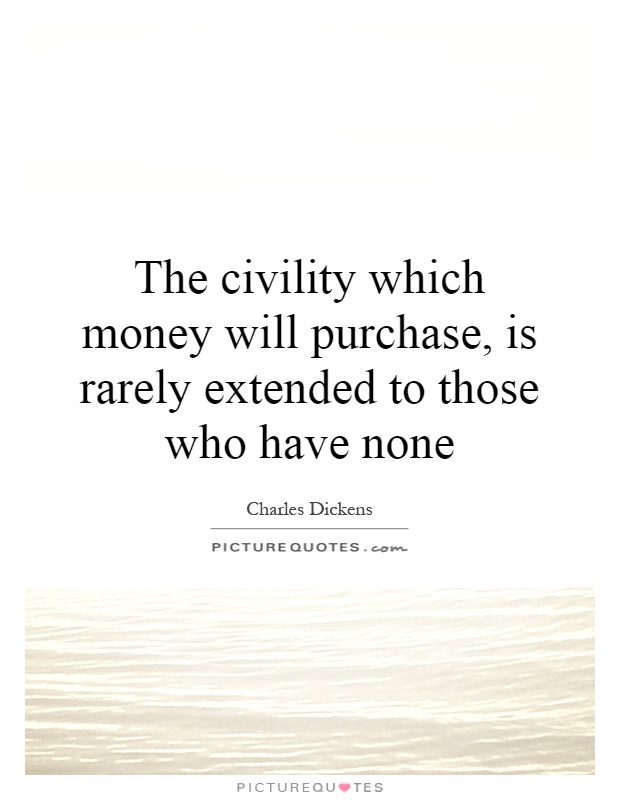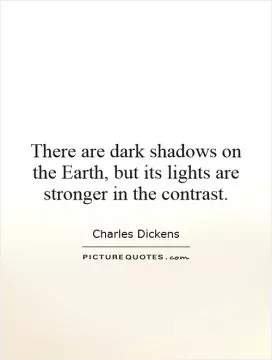The civility which money will purchase, is rarely extended to those who have none

The civility which money will purchase, is rarely extended to those who have none
Charles Dickens, a renowned Victorian-era author, was known for his keen observations of society and his criticism of the injustices and inequalities that existed during his time. One of the recurring themes in his works is the disparity between the wealthy and the poor, and how money often dictates one's social status and treatment by others. In his novels, Dickens frequently highlighted the lack of civility and compassion shown towards those who were impoverished, contrasting it with the respect and deference afforded to the wealthy.One of the most famous quotes attributed to Dickens is, “The civility which money will purchase, is rarely extended to those who have none.” This statement encapsulates the harsh reality of class distinctions in Victorian society, where individuals were judged not by their character or virtues, but by their financial standing. Those who were wealthy were often treated with deference and respect, regardless of their moral character, while the poor were marginalized and disregarded, regardless of their personal qualities.
In Dickens' novels, characters from lower social classes are often depicted as victims of societal injustices, struggling to survive in a world that is indifferent to their suffering. They are subjected to ridicule, exploitation, and discrimination, simply because they lack the financial means to command respect and civility from others. The wealthy, on the other hand, are portrayed as arrogant and self-absorbed, using their money and social status to assert their superiority over those less fortunate.
One of the most poignant examples of this theme can be found in Dickens' novel "Great Expectations," where the protagonist, Pip, is initially ashamed of his humble origins and aspires to become a gentleman in order to win the love of Estella, a wealthy and beautiful young woman. Throughout the novel, Pip learns that true worth is not measured by wealth or social status, but by one's actions and character. Dickens uses Pip's journey of self-discovery to critique the superficiality of class distinctions and the importance of treating all individuals with kindness and respect, regardless of their financial standing.












 Friendship Quotes
Friendship Quotes Love Quotes
Love Quotes Life Quotes
Life Quotes Funny Quotes
Funny Quotes Motivational Quotes
Motivational Quotes Inspirational Quotes
Inspirational Quotes